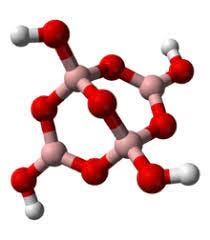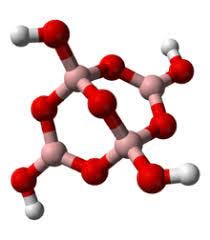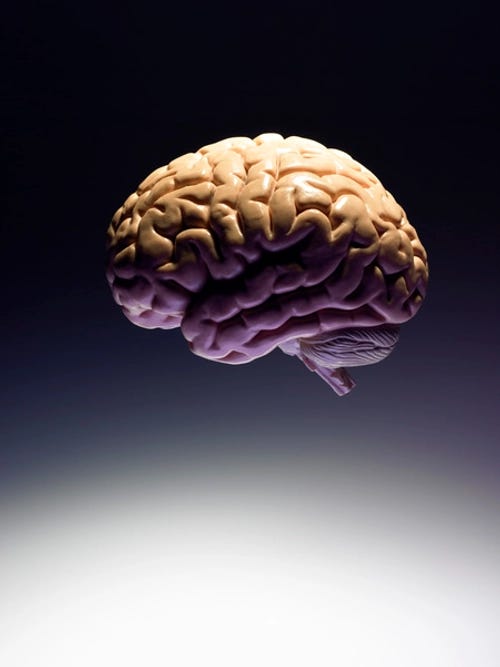Boron is a mineral that is barely ever mentioned by the mainstream medical establishment and yet it has so many beneficial roles within the body. It is a micronutrient, which means only small amounts are needed, but it is essential for optimum health.
Boron and bones.
One of boron’s main functions is bone formation. Most people associate calcium and perhaps magnesium with the bone formation process but are unaware of boron’s role. Boron is essential in osteogenesis and the prevention of bone demineralisation through calcium loss. One of the main functions of boron is to promote the absorption of minerals such as magnesium and calcium, essential for bone health. Unfortunately, the lack of interest in boron by many doctors can lead to serious health issues.
When someone is diagnosed as having osteopenia or osteoporosis a doctor will often prescribe calcium supplements, assuming the patient has a calcium deficiency. However, calcium deficiency is actually rare as calcium is found in an abundance of sources and not just dairy products as many people believe. It is found in seafood and green leafy vegetables and fruit such as oranges and kiwis.
The problem may not be a lack of calcium but the patient’s inability to absorb the mineral. Therefore, adding more calcium in the form of supplements will have no beneficial effect. The problem could be a lack of boron, which is essential for calcium absorption. In fact, giving more calcium to someone who is unable to absorb it properly can lead to various problems.
Excessive amount of calcium can cause hypercalcemia which can, ironically, lead to weakened bones, making the patient’s symptoms worse. Other issues arising from hypercalcemia are heart problems and kidney problems when the calcium builds up in these organs instead of being absorbed into the bones.
Boron not only aids with absorption of calcium but also induces the mineralisation of osteoblasts. Osteoblasts are cells that synthesize bone matrix. They do this by utilising hormones including vitamin D. Boron’s bone building ability also helps repair damaged bones as shown in studies were boric acid was applied directly to the bones resulting in increased volume and thickness compared to untreated bone.
Wound Healing.
Not only does it help repair damaged bones but boron also accelerates wound healing. Numerous studies have demonstrated this ability. One paper stated that boric acid ‘is also noted to improve the rate of deep wound healing by decreasing the patient healing period by a factor of 3 compared to normal antiseptic wound treatments.’
One mechanism is boron’s antioxidant properties which counteracts oxidative stress by removing the free radicals that cause the tissue damage. Another is its effect on the extra cellular matrix (ECM). The ECM is the scaffolding that supports the cells in all tissues. The ECM initiates haemostasis, the blood clotting activity that is the initial stage of wound healing. The biological component of the ECM is produced by cells called fibroblasts and it is these cells that boron interacts with, by facilitating the activity of enzymes within them, and thereby increasing the production of new extra cellular matrix.
Boron as an anti-inflammatory.
Boron also has anti-inflammatory properties and can alleviate the symptoms of arthritis. A trial was conducted on patients with mild to moderate arthritis and, after 8 weeks of receiving boron supplements, 80% of them had reduced their use of painkillers or discarded them altogether. Boron-containing agents have also been patented to treat other inflammatory conditions such as dermatitis, psoriasis, Inflammatory bowel disease and multiple sclerosis. In trials, boron-based compounds have been proven to reduce atopic dermatitis lesions by up to 60%.
Boron as an anti-fungal.
Another benefit of boron is that it is an anti-fungal agent. Trials have shown it inhibits the growth of candida. The candida yeast is usually kept under control within the body by certain strains of bacteria. However, after antibiotic treatment, when these bacteria are eliminated, candida can proliferate, causing candidiasis. Candidiasis can cause oral or genital thrush but can also cause more serious issues linked to increased gut permeability or leaky gut syndrome. This occurs when the filamentous hyphae of the fungus penetrates the gut wall. When the gut wall is compromised, unprocessed proteins can pass through leading to food allergies, and inflammatory bowel disease. Toxins within candida can also lead to conditions such as colitis. Having an adequate amount of boron can therefore help avoid or resolve these issues.
Diabetes
Diabetes is yet another disorder on which boron can have a positive effect. According to an article in ‘Molecular biology reports,’ Boron compounds have ‘increased cell viability, antioxidant enzyme activities and the level of genes related to insulin production’. It has been shown to reduce oxidative stress in diabetic animals, thus helping to preserve the insulin-creating beta cells in the pancreas. It also improves overall glucose metabolism, reducing the symptoms of type 2 diabetes. The success of boron in the treatment of diabetes is due to its antioxidant properties as oxidative stress is one of the major factors in the progression of the disease.
Obesity
Obesity is one of the causes of diabetes and it is interesting to note that boron can also be effective in preventing weight gain. Boron treatment has proven successful in reducing weight in animals. One study revealed the potential mechanism at work, highlighting boric acid’s ability to repress genes and proteins related to adipogenesis. A second study also indicated a similar process was the reason behind boron’s ability to suppress obesity causing activity. A research team in Turkey looking at obesity in the human population found there ‘was a significant and negative correlation between body mass index and daily boron intake.’ Furthermore, a meta-analysis, examining 17 studies, concluded that boron administration, ‘caused significant body weight reduction.’
Boron and the kidneys
Although boron supplementation is not recommended for people with kidney disease, increased boron levels have also shown to protect against the formation of kidney stones and is beneficial in reducing pain and bleeding in kidney stone removal. It has also been shown to potentially reduce death rates in Kidney transplant patients.
Boron has anti-cancer properties.
Other serious illness can also benefit from boron. In an article published in Anticancer Agents in Medicinal Chemistry it states -
“Boron-enriched diets resulted in significant decrease in the risk for prostate and cervical cancer and decrease in lung cancer in smoking women.”
It does this by inhibiting certain cancer-promoting enzymes and also induces apoptosis, or cell death, in cancer cells.
Another publication, Cancer Press, says that boron rich diets show, “a significant reduction in the risk of developing a variety of cancers including prostate, breast, cervix and lung, liver, melanoma.”
Even when taking other factors into account, which are usually considered to be cancer promoting, boron has been shown to reduce prostate cancer rates. One study showed “an inverse relationship between dietary boron intake and the incidence of prostate cancer in spite of other risk factors such as age, smoking, obesity and race.”
Detoxification
The environment is laden with potentially dangerous substances such as heavy metals. A recent study examining the detoxification properties of boron in relation to arsenic, cadmium, bismuth, mercury and lead concluded that –
“The tested boron compounds (5-20 ppm) significantly reduced the genotoxic effects induced by low doses of heavy metals. Our results revealed that the protective roles of boron compounds occurred with the effectiveness on their antioxidant capacity.”
A paper focusing on boron’s potential to lessen the toxic effects of aluminium found that it reduced oxidative stress damage in the brain, reduced chromosome damage and reduced the capacity for the lungs to create dangerous reactive oxygen species. They concluded that ‘boron administration can prevent the emergence of various neurodegenerative and hematological diseases.’
Boron can also help in removing fluoride from the body. Excessive fluoride can lead to dental fluorosis which results in mottling of teeth and skeletal fluorosis which can result in weakened and deformed bones. A study with buffaloes showed boron supplementation decreased the absorption and retention of fluoride in the animals.
A Chinese study was conducted in patients with fluorosis symptoms such as dizziness, headaches, limb pain, back pain tinnitus, palpitations and fatigue. Treatment with borax (a chemical compound containing boron) showed an 80% improvement in overall symptoms.
Boron is good for the heart.
There are numerous ways in which boron promotes protects the heart. In a rat study, boron produced, ‘significant improvement in systolic and diastolic functions’ in the rats after induced heart attacks. There was also ‘marked reduction in myocardial fibrosis and apoptosis in the injured hearts, highlighting a protective effect of boron in the ischemic heart.’
A further study on rabbits showed that boron can help protect against the accumulation of atherosclerotic plaque which causes the thickening of the arteries and potentially strokes and heart attacks. It does this via its antioxidant and anti-inflammatory properties.
The Role of Boron in the Immune System
Boron plays a vital role in immune system responses. It has been shown to increase lymphocyte proliferation, tumour necrosis factor, interleukin 6 and 1beta, and nitrous oxide, all of which are crucial components of the body’s initial defence mechanism against infection.
It positively affects both T1 (cellular) and T2 (humoral) arms of the immune system and boron supplementation is, therefore, recommended as a form of immune regulator. It also enhances the function of Fc receptor cells. These are proteins found on the surface of infection- fighting cells such as neutrophils and macrophages. They bind to antibodies attached to infected cells and stimulate them to kill the pathogen. Boron also increases the number of Natural Killer Cells which target infected and cancerous cells in the body.
Boron and the brain
Three studies looking at how boron may affect cognition concluded that the group with higher boron intake showed better performance in relation to manual dexterity, eye-hand coordination, attention, perception and short and long-term memory. Other studies showed that low levels of boron resulted in decreased electrical activity in the brain similar to that found in malnourished patients. Further research suggests that it is the antioxidant property of the mineral that has such a positive effect on cognitive function. It states that boron ‘prevented lipid peroxidation by supporting and strengthening the antioxidant defense system,’ and concluded that boric acid ‘positively affects learning and memory abilities and reduces oxidative stress.’ Tests with boron compounds have shown how they may protect against Alzheimer’s as they help protect against the toxic effects of amyloid-beta plaques, the accumulation of which are believed to be crucial to the onset of the disease.
Boron increases vitamin D levels.
Other health benefits of boron could be as a result of the mineral’s ability to increase vitamin D levels and keep those levels higher for longer. Vitamin D, like boron, helps with absorption of calcium, thus helping with bone formation. It also has a prohibitory effect on cancer cells, is an anti-inflammatory and aids the immune system. Vitamin D increases testosterone in men and could therefore help with fertility issues. It can also balance female hormones, alleviating menopausal symptoms such as headaches, mood swings, depression and hot flashes.
Sources of boron
Boron is found in apples, prunes, avocados, peaches, peanuts, beans, potatoes, sweet potatoes, cherries, onions. and coffee and certain herbs such as dandelion and nettle.
If taking supplements, always stick to the recommended dosage. For advice on the safe limits of boron intake, please go to this page on the website of Dr Axe.







